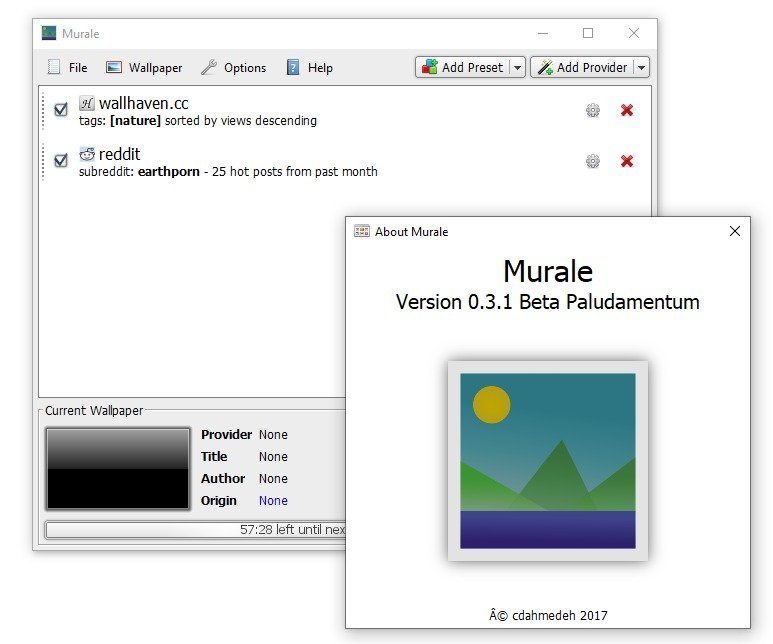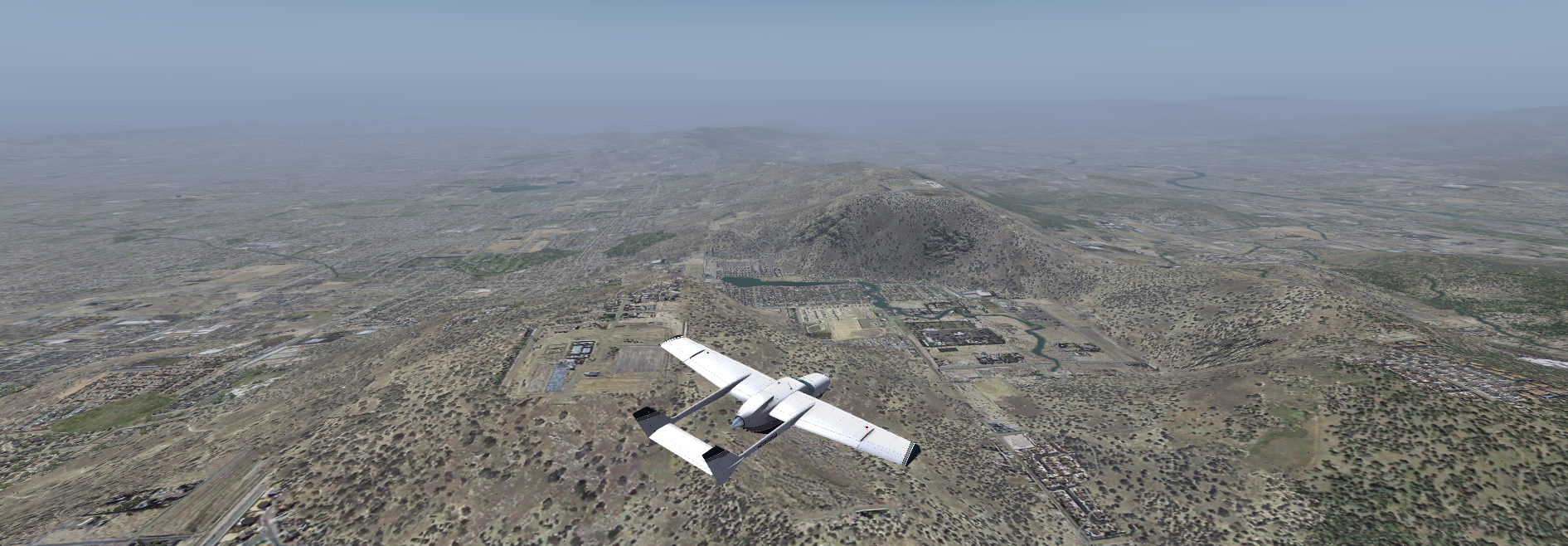“You can do anything if you put your mind into it”
Some Optimist - Many Years (Eons?) Ago
The infamous quote is thrown everywhere so much that it has become sort of a platitudinal stereotype. However, it skips on one thing: the effort required to actually “put your mind into it” and what steps and procedures you’re actually supposed to take. Learning takes copious time and unending dedication to the point where you may have to sacrifice parts of your life to get to where you want to in a practice, art or field. You may face obstacles you believe that you can’t surmount and face fears that have never been shown to you.
Turns out, it’s not that easy.
The Dangers of Specialization
Universities aren’t the best place to learn - CC BY-NC-ND 2.0 by barnyz
As our world steers into a specialized one, where one only masters one very particular topic to detriment of ignoring everything else, we are losing our generalists who can be pretty good at many things at the same time. For the past few centuries, several institutions notably universities, how been touted as the primary way of learning. Amassing knowledge is expensive, time consuming and often loaded with boring lectures and unending sprint of assignments.
Intellectuality without the Formal
What a fancy diploma looks like serving but nothing as a decorative piece - CC BY-NC-SA 2.0 by mag3737
Many of the concepts I’ll be presenting here are based on anecdotes rather than hard science. I’m doing this on purpose because I saw what some have become although they didn’t even complete high school. I’ve met many people online and offline who have amassed quite some knowledge in addition to healthy critical thinking dipped in reason and even some emotionality. Some of the most intelligent people I’ve met have no semblance of any credentials such as diplomas still having a hunger for knowledge.
These people have become intellectuals without the need for anything formal. There’s a fine line between intelligence and intellectuality. The former is essentially a status that is achieved and grown through intellect; it’s the measuring stick. Being an intellectual represents a deep hunger for knowledge usually seen as simply a means to an end. In other words, learning for the sake of learning.
The average person has limited their knowledge to what their formal education has taught them, much of the content actually forgotten after the exam, and work in fields completely unrelated to what they studied. On the other hand, specialists are too engrossed in the tiny subject that they are obsessed about. I fail to see how these knowledge perspectives can actually be steps toward building a solid intellect. I’ll actually argue that they are both the same, they’ve hit a wall with no doors to newness or curiosity.
Neglecting Learning
Boxed and scared in by not learning - CC BY 2.0 by admiller
Knowledge a few centuries ago were limited to the elite who could afford to travel to absorb books and meet scholars. However, with innovations such as the printing press, known as the printer today, knowhow and many topics became accessible to many more. Oddly enough, libraries are frequented by few people being full with unread books collecting nothing but dust. There’s a few statistics about this, but I’ve been given the impression that few people read. Their bookshelf is nothing but a showpiece and the Kindle was a useless birthday gift.
Self-Learning
This is where self-learning comes into place. Rather than spend thousands of dollars to hear tasteless lectures that induce sleep better than most hypnotic agents, you can acquire knowledge and learn new arts on your own. The difficult part is the discipline needed to keep going. The avolition that stems from a fatiguing life steers us toward Netflix rather than say a book or a documentary.
Most will agree that the Internet has brought a paradigm shift to how knowledge can be acquired. Many resources are becoming free or simple to pirate bringing a endless world of paths towards expertise. Books are getting cheaper than ever with the advent of online stores and enjoyed in many formats from text to a talking audiobook. Google has made it possible to find things so quickly (at the price of losing any sense of privacy).
Approach
What I’m going to be touting here is an approach to learn, and learn quickly. I will be trying to combine effective techniques that modernity and technology has presented to us in addition to ancient proven methods that made our notable figures in history as polymaths.
Pick Something You Want To Learn
For me, this is the easier (or day I say. the easiest) part of the entire endeavour. Look at the many around us who can produce music in short moments or an author who writes world-renowned books. What about the more mundane such as knitting or geocaching? Do you want to become a simracer who tops the multiplayer charts or even learn how to fly an airliner in a flight simulator?
The end goal can be whatever you like but keep in mind that failing at achieving it isn’t the end of the world. You can always reset your compass whether you want to move to something else or find a new objective. Some of the more shallow purposes such as money and fame are more luck-based and will often lead to disappointment. While some other ideas such as developing your intellect and stimulating your brain can be more figuratively lucrative. Maybe you want to use those new powers for helping others or perhaps just for a sense of fulfillment. This is something that no one can pick for you and left to your own imagination and worldview.
Momentum
How momentum plays a role in learning - CC BY-NC-ND 2.0 by Chris Devers
Like I mentioned before, learning resources have become so abundant thanks to our modernity and technology. They can come in so many forms that are easy to find, affordable (or even free) and copious. Formats are also of many mediums and styles.
The discipline will be difficult to develop and I can’t tell you how to forge it into your lifestyle. Everyone is geared to a method that only works for them as a means to success. Productivity isn’t found in a self-help book but rather through experimentation. I’ll admit that school forces us to discipline because we’re chasing a good grade but that is honestly quite artificial. Rather, try something more novel. Here are some ideas:
Finding an accountability buddy where you can make promises to keep about a step you want to take. Either offline or online will probably work.
Sharing your experiences with others ideally like-minded. Admitting grudgingly, I used to believe that no one was interested in the obscure things that I did, it turned out that many were lit up by it.
Turn your learning into a game using perhaps a todo-list or a calendar. Keep track of your success of a reminder of your progress.
Many people talk about motivation and concentration to obtain a dopamine rush but we are not automatons who can enter learning mode in an instant. Through personal experience, I realized momentum played a more important role into actually doing something. In the likeness of pushing a heavy boulder at first seems unsurmountable but once it’s starts moving, it’s easier to keep it going. I’ll admit that this is my biggest challenge but I realized that it’s like your appetite. It doesn’t start until your first bite and then you keep going. Once you surmount your first steps, you develop a quasi-addiction that you can even claim to be enjoyable. You start looking forward to it all the time.
How?
Reading is one method of learning - CC BY-SA 2.0 by benuski
Reading is the classical way to acquiring knowledge and even entertain ourselves. The advantage is that the subject is covered in-depth spread across hundreds of pages. No one is forcing you to read so you can develop your own pace that works with your life. However, in my opinion, this is probably the method that needs the most concentration and dedication. I didn’t mention a medium on purpose because there’s so much such as books, newspapers, blog posts, Wikipedia and countless others.
Listening seems to be a very popular method to learn even for the more visual. The success of audiobooks is a clear sign that it seems to be working for many. A great advantage is how it can be integrated and mixed with other mundane tasks such as driving home from work or cleaning the house.
Watching is an obvious one and we know how popular it is through the infiltration of cable TV at everyone’s place and the universality of streaming services. Documentaries are a great way to amass knowledge and the abundance of it means you can enjoy different perspectives of the same thing. I did say that it was boring, but that was my view, recorded lectures can now be found for free.
Kinesthetic learning involves going through the motions of doing what you’re learning. It’s both a form of starting from scratch and practice towards expertise. Just like watching, it can be done alone or in a group. For those with more social predispositions, this might be very effective.
Meetups are a great way to get exposed to a field quickly. It’s akin to diving into a cold swimming pool. There’s many places to find them such as Meetup.com or Facebook groups where you can meet like-minded people who have the same cravings as you. Some are more freeform while others more serious. Debate groups are abound and you’ll be forced to give in your two cents or ask difficult questions. This is ideal for the extraverted.
Now, I’ve heard so many claims about how one method leads to more retention than a another but these are based on simplistic views of psychology. The truth is that everyone has a different personality structure that prefers one method over another. The most effective technique is probably doing a combination of the above to make use of the advantages of each other.
Ducking Academia
As you may have noticed, I totally ducked the whole idea of academia. This isn’t an accident or an exercise of forgetfulness. We have been blessed by our technological advancements that make learning so cheap (or even free). No need to pull out a mortgage for tuition and putting ourselves in crushing debt.
One thing I would like to mention briefly, don’t put yourself into a money pit. Don’t go on a book shopping spree or buy the most expensive camera equipment for your new found love of photography. If you can, try to start with what you already have and control your spending. Many hungry knowledge seekers are young and don’t have any income as a means to purchase equipment. I’ll leave to your online search skills to find way to get things for cheap. At one point, once you’re in the zone, it will make sense to spend a bit. Remember, the equipment isn’t for showing off, but should be seen as method to become better at what you do.
Multitasking
Our minds work like single-core processors - CC BY-SA 2.0 by loan Sameli
Our brain is like a single-threaded processor, it can’t do exactly do two things as one. While you can do what most operating system schedulers do, switching between one task and the other constantly, it will lead to concentration issues and loss of the momentum I just mentioned earlier.
This doesn’t mean though you can’t dedicate yourself to more than one thing. You can alternate between many things over time and find yourself learning even more, widening your skillset and become an expert in many trades. The statement “jack of all trades, master of none” is a big fallacy in my view as I’ve seen people who’ve mastered many things. Look at our historical figures who were polymaths innovating in many fields and being pioneers in all sorts of arts.
Me
Personally, I was never satisfied enough with what was brought to me by high school or university. My diplomas are fancy papers that I hang on my entrance but don’t define my field or even my identity. As one of my favourite managers put it, I’m always “stuck in learning mode”. It’s an obsession where every question that pops up in my head must have an answer by the end of the day, otherwise I’ll going into a deep downward spiral (maybe this is a bit of catastrophizing). I enjoy the exercise of coming up with more questions on the spot. I find my browser full of tabs of keywords that I came up across up on Wikipedia. One article keeps leading to another. There’s a ongoing joke which is partly true that every link path links to philosophy.
This is a list of things that I’m trying to learn right now:
Learning how to use automatic landing in a crosswind on a 767 - Copyright 2022 Ahmed El-Hajjar
One of my aspirations is to become an author - CC BY-NC-SA 2.0 by vogmae
Improve my writing skills which I’m doing through my blog and social media presence. I aspire to be an author and have many subjects in mind but I can’t pick yet. I feel like I’m still a mediocre writer so I’m reading as much as I can to determine what structure is ideal. On the other hand, I still want to have my special touch.
Read more. I’ve been a lazy reader for a good part of my life and eventually realized on how much I was missing. My goal for 2022 was to read a book a week and so far so good. I’m managing to read two books a week sometimes. I mentioned that I wanted to become a generalist before, but this is the path I’m taking towards that goal. I’m a non-fiction lunatic and will read anything that isn’t a biography.
I want to drive better. One of my hobbies is driving and it’s something I do daily despite not always having a destination. Learning better car control, improving observation skills and knowing local laws better. Most importantly, I want to drive standard transmissions more smoothly and use advanced techniques. I’m just about to do my first mod to make heal-toe easier with a pedal bracket.
Learning more about flight. My first experience with flight simulator was when I was nine. Back then, I would constantly crash the plane on takeoff and couldn’t even do a simple pattern. I’m at a point now where I can do some procedures for different kinds of planes and have basic IFR navigation skills. I’m learning ATC phraseology so I can go on the VATSIM network.
Making gadgets. I started with a free piece of software called Fritzing trying to design circuits. I kept it as simple as possible using the simplest of tools to make things. I can now program microcontrollers and design basic circuits. I’ve procured a cheap refurbished 3D printer having learned some 3D modeling.
A Desktop Application that I’m currently working on. - Copyright 2022 Ahmed El-Hajjar
Make user facing applications. I spent a good part of my life doing web servers and APIs in the corporate realm. I want to make something that has a visual aspect to it. I’ve started to learn UI libraries in languages that I already know but also look at embedded web frameworks.
Learn more about myself. This is very difficult for me because I only recently started to face the fears that I had about the various worldviews that life had for us. Finding out what I liked and what didn’t through experimentation. I feel like I’m nowhere near my maximum potential but I’m finally learning labels to describe my story.
Conclusion
My article doesn’t have the objective of telling you exactly what to do in order to learn and become proficient at something. Rather, try to build a framework that works for you and your unique personality and style. Most importantly, remember to enjoy the journey rather than zone-in on the goal. Trust me, it will eventually become an addiction to the point of having a faith that dictates what your life should look like: one that is as fruitful as possible. Self-learning is where it’s at!
Gems
A plug to my Gems List, except mine are coloured and much cheaper than these diamonds - CC BY-ND 2.0 by Kim Alaniz
I have compiled a long list of resources where you can learn different things for free on my website. This is a shameless plug for my Gems List, which is growing all the time.


























